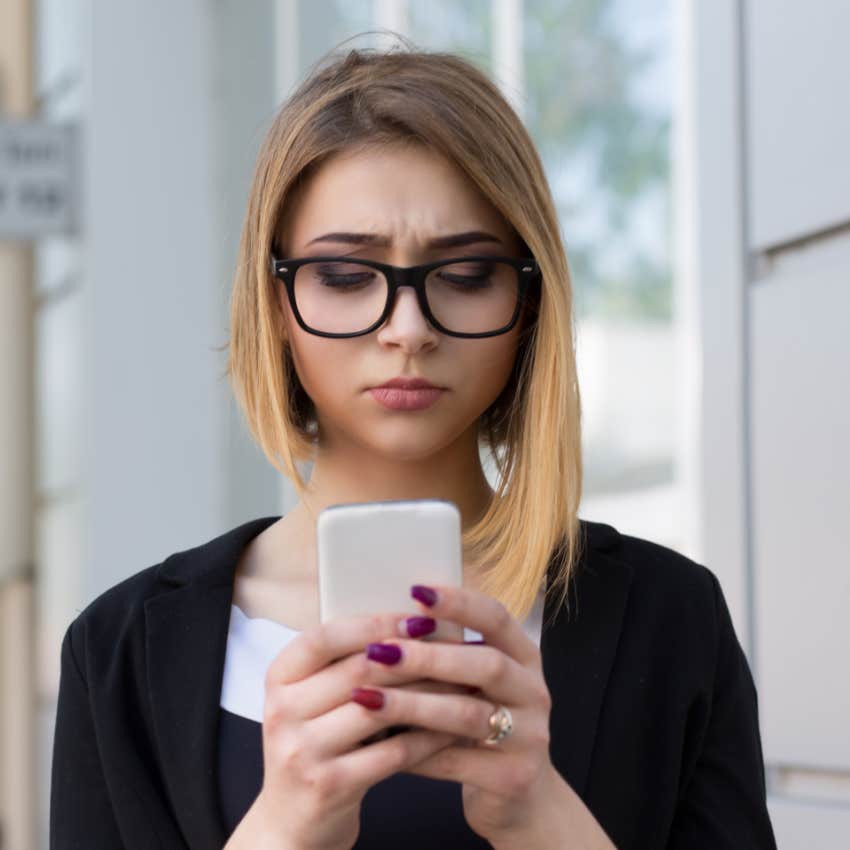5 Coping Strategies That Actually Make Anxiety Worse
Getting comfortable in the uncomfortable can be, well, uncomfortable, but it is also better for you and your anxiety.
 Krakenimages.com / Shutterstock
Krakenimages.com / Shutterstock Anxiety can be a real pain, right? To cope, many of us tend to over-prepare just to avoid dealing with that overwhelming sensation. But guess what? Turns out, all that over-preparing might just be making your anxiety worse.
So, what every day habits can we ditch to make our anxiety more bearable? In a TikTok post, anxiety therapist Joshua Fletcher breaks down five coping strategies you may use that could actually be making your anxiety worse.
5 Coping Strategies That Make Our Anxiety Worse
1. Keeping a water bottle with you
Can't leave the house without a water bottle? Turns out this can be causing your anxiety to worsen.
 Photo: mimagephotography / Shutterstock
Photo: mimagephotography / Shutterstock
Being prepared isn't a bad thing. However, constantly being prepared can leave you in a state of comfort. And according to Fletcher, comfort isn't always helpful.
Constantly being comfortable makes it harder to embrace discomfort. And as the Association of Psychological Sciences writes, “Personal growth is sometimes uncomfortable; we found that embracing discomfort can be motivating.”
But if you can't tolerate being uncomfortable how are you meant to grow? The truth is you can't.
So, leave your water bottle at home from time to time. Your initial discomfort will be key to easing your future anxiety.
2. Checking your blood pressure
Are you the type to check your blood pressure or heart rate multiple times a day? Constantly fretting over these things can worsen your anxiety.
Registered nurse Cyra-Lea Drummond writes that checking your blood pressure isn't a bad thing. She recommends checking it a couple of times throughout the day if you're just starting.
However, she warns that obsessively checking it can cause patients to experience anxiety. When we experience too much anxiety this can lead to gastrointestinal issues, hyperventilation, trouble sleeping, and even suicidal thoughts, writes Piedmont Health Care.
3. Keeping sugary foods handy
I enjoy sweets as much as the next person, but it's important to moderate your intake now and then.
If you constantly crave sweets and can't leave the house without them, this may be a sign of addiction. As dietitian Anna Taylor tells Cleveland Clinic, “Our brains are wired to enjoy things which make us happy, says Taylor. Sugar, in particular, releases brain chemicals like serotonin, that make us feel good.”
Though this doesn't sound bad, this sugary consumption can lead to worsening anxiety. According to Intrepid Mental Wellness, PLLC, continuously consuming sugar causes our sugar levels to increase and decrease.
This constant change releases both adrenalin and cortisol into our bloodstream, which causes both anxiety and panic attacks to occur.
4. Making sure you always have a signal on your cell phone
Always feeling the urge to check your signal? Constantly checking your phone only heightens your anxiety.
 Photo: HBRH / Shutterstock
Photo: HBRH / Shutterstock
As doctor Dennis Buttimer explains to Piedmont Health Care, when we check our phones, it releases dopamine, which comes and goes rather quickly. To compensate we unconsciously begin to check our phone to keep our dopamine levels up.
According to Piedmont Health Care, limiting phone usage helps:
- Decrease anxiety and stress.
- Increase clarity.
- Form deep connections with others.
- Inspire thinking and creativity.
So, turn off your phone or limit your screen time during specific times of the day. Your mental health will thank you for it.
5. Making sure a certain person is always available
While venting, it's natural to feel like your friend is your sole source of comfort for calming anxiety. However, sometimes a little solitude is necessary.
According to ACM Digital Library, “Self-reflecting on emotional reactions during daily life activities is a critical part of anxiety treatment.” Self-reflection leads to observing our behavioral patterns which leads to behavioral changes.
However, you can't self-reflect if you don't allow yourself to be alone. So, spend some alone time reflecting on your emotional state. Ask yourself what's causing you to feel so anxious.
From there reflect on ways you can ease your anxiety through self-care.
By getting rid of these five simple habits, you can start to feel comfortable in the uncomfortable.
Marielisa Reyes is a writer with a bachelor's degree in psychology who covers self-help, relationships, career, and family topics.

